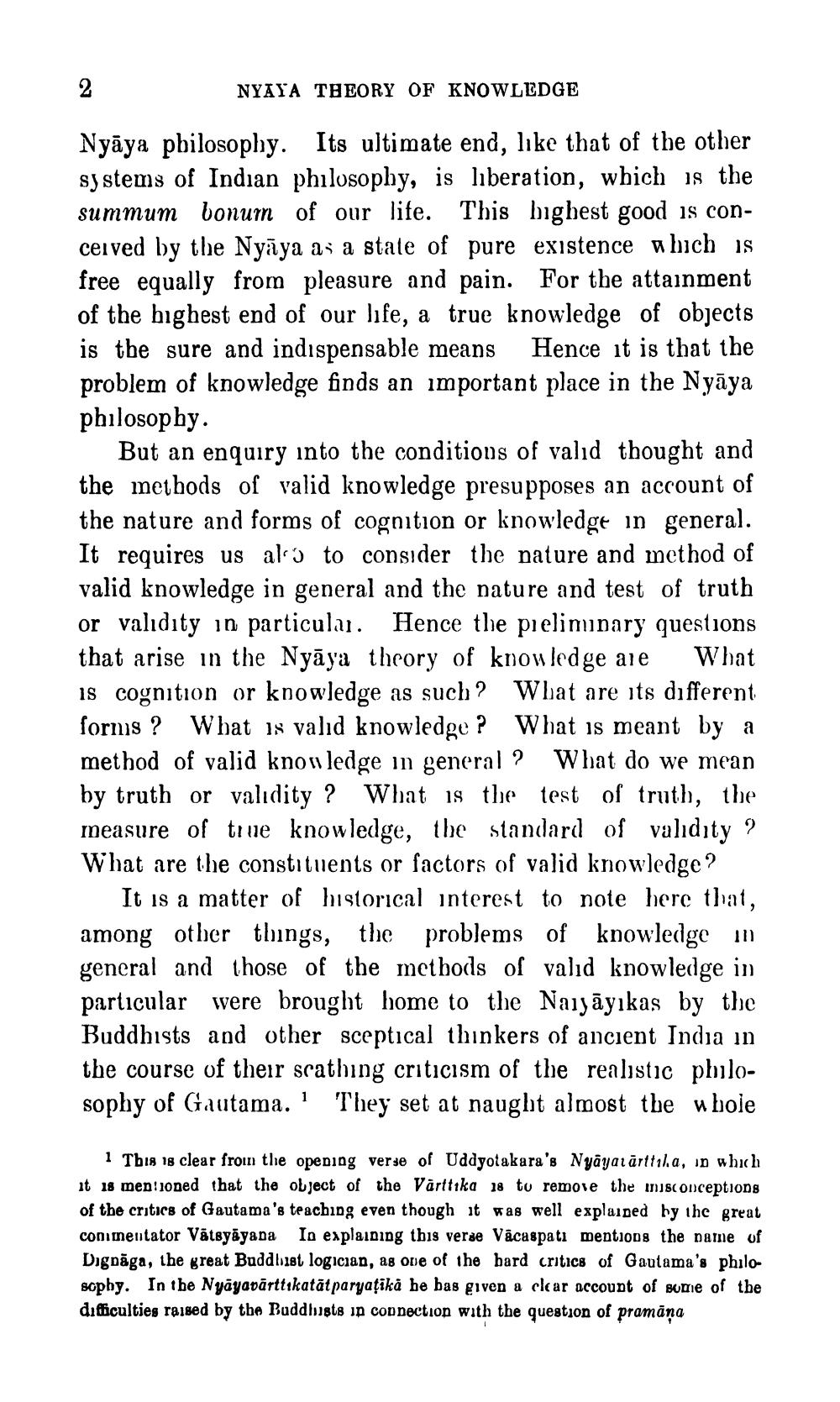________________
NYAYA THEORY OF KNOWLEDGE
Nyāya philosophy. Its ultimate end, like that of the other systems of Indian philosophy, is liberation, which is the summum bonum of our life. This highest good is conceived by the Nyāya as a state of pure existence which is free equally from pleasure and pain. For the attainment of the highest end of our life, a true knowledge of objects is the sure and indispensable means Hence it is that the problem of knowledge finds an important place in the Nyāya philosophy.
But an enquiry into the conditions of valid thought and the methods of valid knowledge presupposes an account of the nature and forms of cognition or knowledge in general. It requires us alo to consider the nature and method of valid knowledge in general and the nature and test of truth or validity in particular. Hence the preliminary questions that arise in the Nyāya theory of knowledge are What is cognition or knowledge as such? What are its different fornis ? What is valid knowledge? What is meant by a method of valid know ledge in general? What do we mean by truth or valıdity? What is the test of truth, the measure of the knowledge, the standard of validity ? What are the constituents or factors of valid knowledge?
It is a matter of historical interest to note here that, among other things, the problems of knowledge in general and those of the methods of valid knowledge in particular were brought home to the Naijāyikas by the Buddhists and other sceptical thinkers of ancient India in the course of their scathing criticism of the realistic philosophy of Gautama.' They set at naught almost the whole
1 This 18 clear from the opening verse of Uddyotakara's Nyāyaiārttila, in which It is mentioned that the object of the Värttıka 18 tu remove the misconceptions of the critics of Gautama's teaching even though it was well explained by the great commentator Vätsyāyana In explaining this verse Vacaspati mentions the name of Digpăga, the great Buddhist logician, as one of the bard critics of Gautama's philosophy. In the Nyāyavārttikatāt paryaţiká be bas given a clear account of some of the difficulties raised by the Buddhists in connection with the question of pramāna




